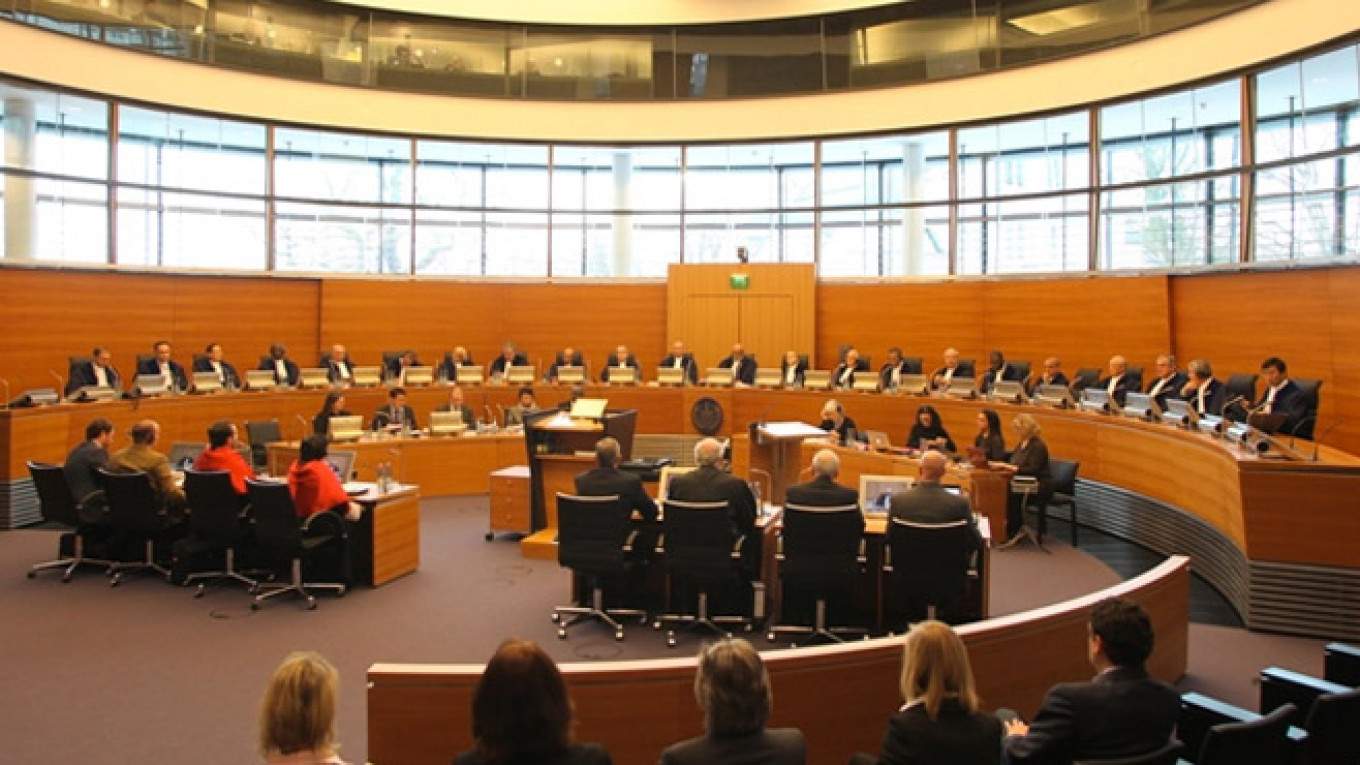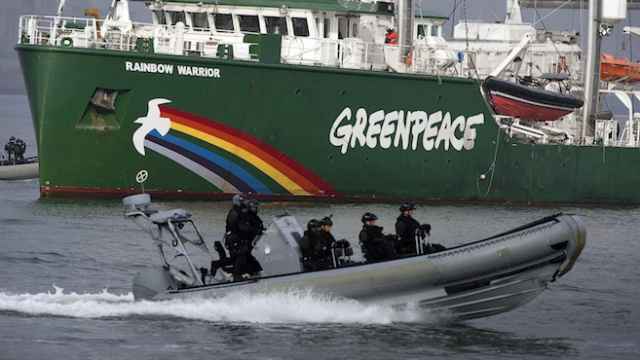A Russian lawyer has been elected the new president of the International Tribunal for the Law of the Sea, a global body that caused some controversy in Russia last year following Moscow's seizure of a Greenpeace icebreaker.
Vladimir Golitsyn, 67, was elected president Wednesday after 21 tribunal members cast votes in a secret ballot, and he has since begun his three-year term in office, according to a statement on the court's website.
The lawyer — a graduate of the Moscow State Institute of International Relations — previously worked for the Soviet Foreign Ministry as well as the United Nations, and has been a member of the tribunal since 2008.
Golitsyn, who also moonlights as a law professor, specializes in seabed and continental shelf disputes, environmental issues and the Arctic, according to his bio on the tribunal's site.
Arctic issues came under the court's spotlight last year when Russia seized Greenpeace's flagship vessel, the Arctic Sunrise, after it was used to stage a protest at an oil rig inside Russia's exclusive economic zone.
The ship's crew and activists were charged with piracy and later hooliganism, but were later released under a presidential amnesty following a stint in Russian custody. Russia also seized the Arctic Sunrise — which was sailing under a Dutch flag — before returning it to Greenpeace several months later.
The Netherlands took the dispute to the International Tribunal for the Law of the Sea, which ordered Russia to release the Greenpeace ship.
But the ruling was rejected by the Kremlin and opposed at the time by Golitsyn, one of the two tribunal members to voice a dissenting opinion, though that did not prevent him from clutching the tribunal's presidency this week.
The UN-endorsed, Hamburg-based tribunal is considered the world's top judiciary body for maritime disputes, tasked with overseeing the enforcement of the UN Convention on the Law of the Sea. It has reviewed only 22 cases since its inception in 1996.
A Message from The Moscow Times:
Dear readers,
We are facing unprecedented challenges. Russia's Prosecutor General's Office has designated The Moscow Times as an "undesirable" organization, criminalizing our work and putting our staff at risk of prosecution. This follows our earlier unjust labeling as a "foreign agent."
These actions are direct attempts to silence independent journalism in Russia. The authorities claim our work "discredits the decisions of the Russian leadership." We see things differently: we strive to provide accurate, unbiased reporting on Russia.
We, the journalists of The Moscow Times, refuse to be silenced. But to continue our work, we need your help.
Your support, no matter how small, makes a world of difference. If you can, please support us monthly starting from just $2. It's quick to set up, and every contribution makes a significant impact.
By supporting The Moscow Times, you're defending open, independent journalism in the face of repression. Thank you for standing with us.
Remind me later.






